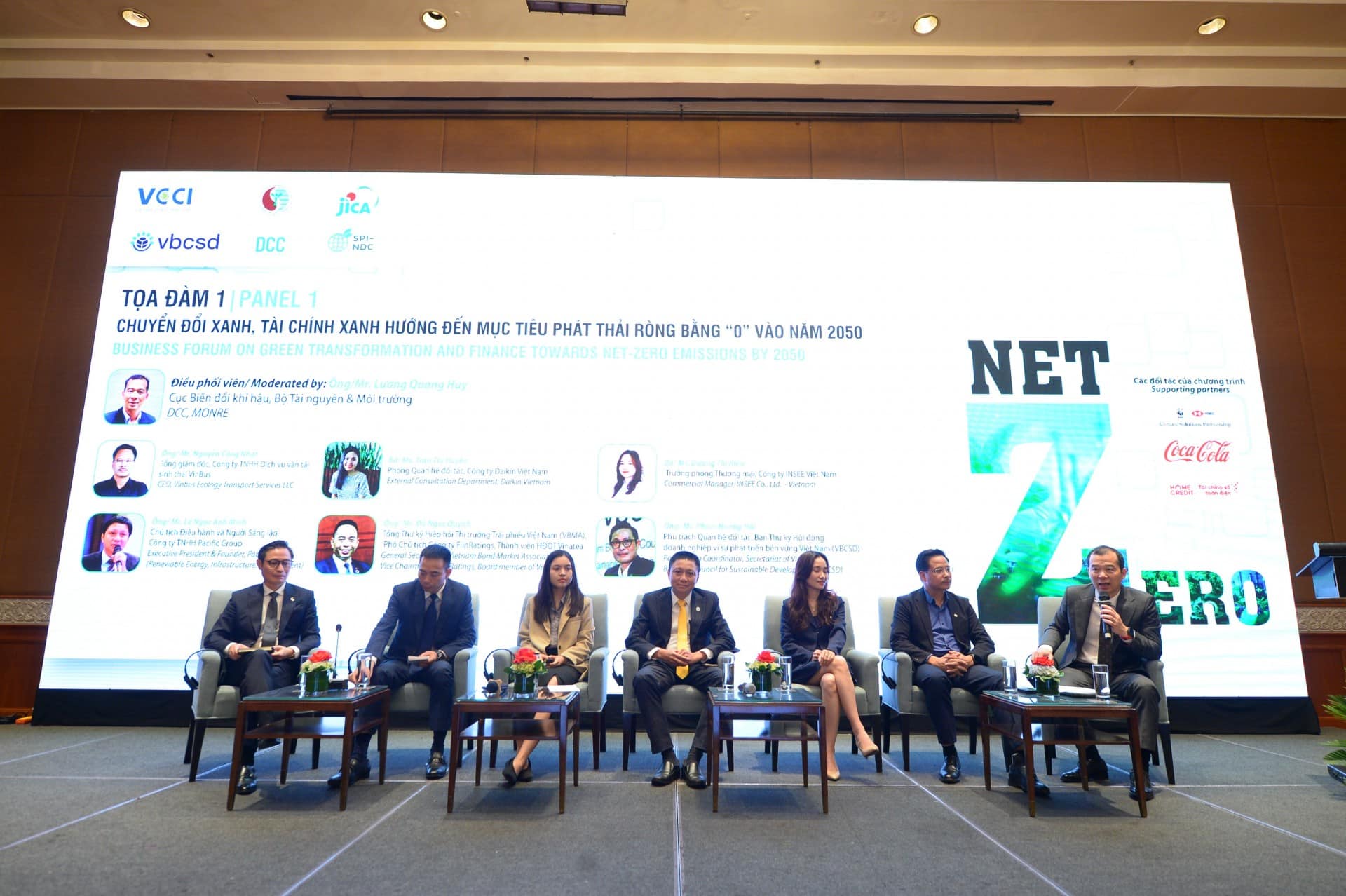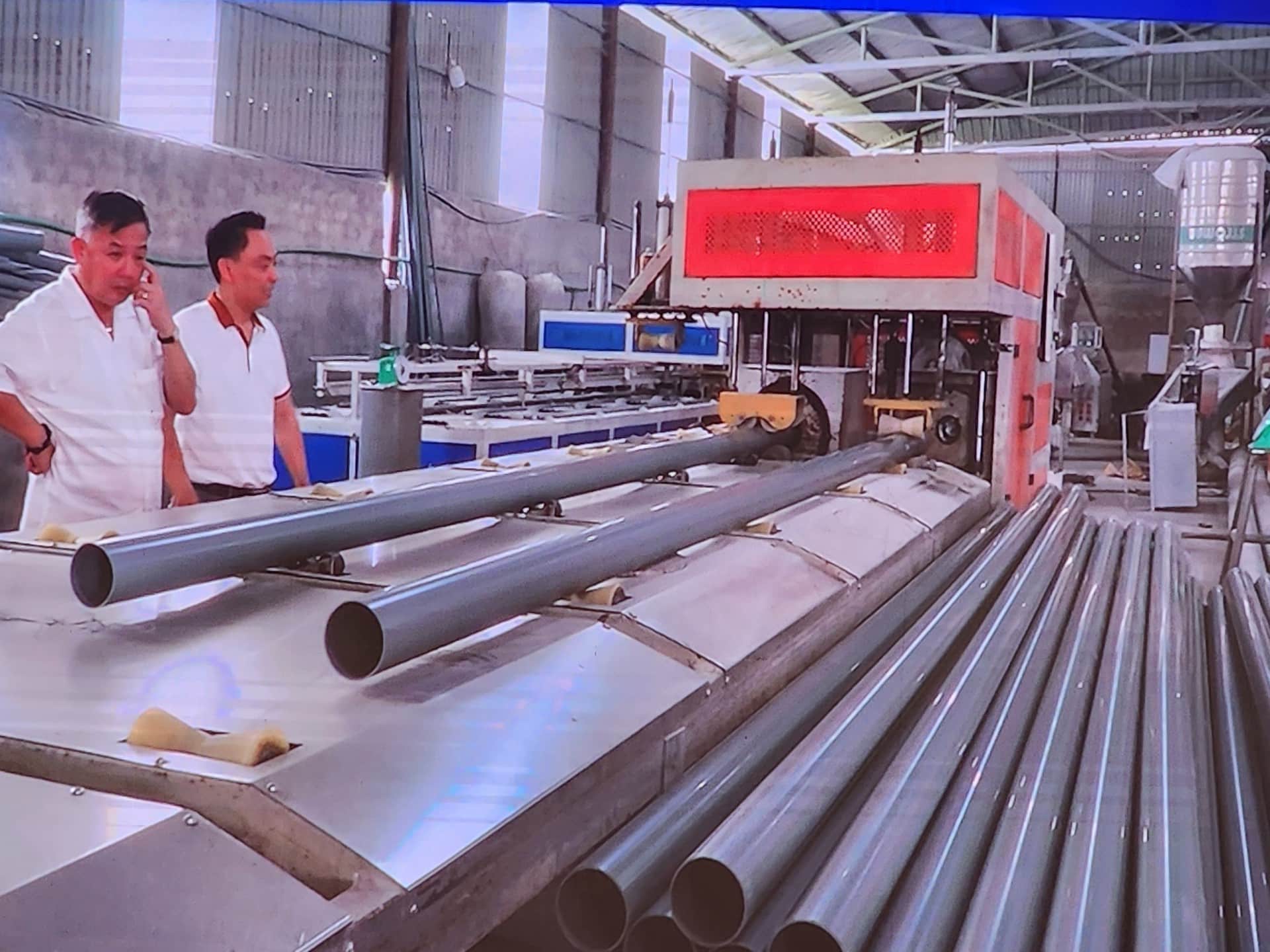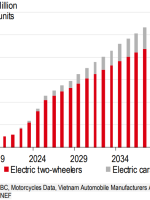
Transition towards Net Zero an inevitable trend
Director of the Vietnam Chamber of Commerce and Industry’s (VCCI) Business Office for Sustainable Development Nguyen Tien Huy said green transformation and development of a low-carbon and circular economy are not only trends but also mandatory requirements for the sustainable development of humanity.
According to the Deloitte 2023 CxO Sustainability Report made based on Deloitte’s survey of more than 2,000 Chief Experience Officers (CxOs) across 24 countries, global executives have faced a number of challenges, including economic uncertainty, geopolitical conflicts, supply chain disruptions, and talent shortages, among others. Despite these headwinds, the concern over climate change continues to be a top priority for CxOs and their organizations. Many CxOs (61 percent) said climate change will have a high impact on their organizations’ strategy and operations over the next three years.
Importing countries are introducing new green regulations and requirements for exporting countries. Vietnamese enterprises must transition into a responsible, sustainable business model to integrate into global economic communities and sustainable supply chains, Huy said.

Business capability improvement
Nguyen Tuan Quang, Deputy Director of the Ministry of Natural Resources and Environment’s Department of Climate Change, believes that if businesses can seize opportunities presented by climate change, they will adopt new economic and financial models and have the chance to participate in the carbon market. Market development, technological innovation, low-emission production, and sustainable business practices are crucial to increase competitiveness and generate sustainable profits. Businesses can strengthen trade cooperation, invest in development, and mobilize resources and technology from investment funds and financial institutions to develop environmentally friendly and climate-smart businesses and build a brand for environmentally friendly products.
Justin Wu from the Hong Kong and Shanghai Banking Corporation (HSBC) said HSBC’s approach is aligned with the common goals of governments, aiming to achieve the target of a US$1 billion investment in green finance by 2030. HSBC has an active capital funding partnership process, and businesses that join it must ensure carbon reduction, said Justin Wu.
Le Ngoc Anh Minh, Chairman of Vietnam ASEAN Hydrogen Club and Executive President at Pacific Group, said Vietnam currently lacks gas and liquefied petroleum gas (LNG) infrastructure, and a supply chain needs to be formed based on researching and adopting new technologies, and equipment and component production in Vietnam to reduce hydrogen plant investment costs. Vietnam has low labor costs and other low expenses, but imported equipment costs are very high, so cost reduction is necessary, he said. With reasonable costs, mass production can be carried out for domestic use and export, Minh said.
At the COP26 conference, more than 450 financial institutions from 45 countries pledged to shift their investments towards green finance, with a total managed asset value reaching trillions of US dollars. This presents significant opportunities for businesses to embrace the transition towards green growth and sustainable development.
Fifty-six percent of more than 10,000 businesses surveyed by VCCI said they see opportunities from climate change. Among them, about 30 percent believe it is time to restructure and rearrange production, while 17 percent see this as an opportunity to create new technological products and services and develop additional markets for existing products.
According to Fukuda Koji, chief technical advisor of SPI-NDC – JICA Project for Support for Planning and Implementation of the Nationally Determined Contributions in Vietnam (SPI-NDC), financial institutions worldwide, including those in Vietnam, are expanding their portfolios of green investments and reducing greenhouse gas emissions for funded projects.
Thu Huong




